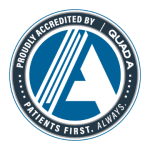Frequently Asked Questions Plastic Surgery Center of Tampa
ContactChoosing the Right Plastic Surgeon
As cosmetic surgery becomes more mainstream and patients become better educated, it seems that most patients know to look for a board-certified plastic surgeon or a member of the American Society of Plastic Surgeons when researching for a prospective doctor. But what is a “board-certified plastic surgeon” exactly? With all the “cosmetic surgeons,” “dermatologic surgeons,” “facial surgeons,” “oculoplastic surgeons,” and “cosmetic doctors” advertising their services, it can get confusing. Here’s what you need to know…
Board-Certified Plastic Surgeon
The only medical board that governs and certifies plastic and reconstructive surgeons is the American Board of Plastic Surgery. Each area of medicine, including plastic surgery, general surgery, internal medicine, obstetrics and gynecology, emergency medicine, family practice, dermatology, ENT, and ophthalmology, to name a few, has their own governing body that certifies members of that specialty. While, legally, any licensed physician can practice any type of medicine and even perform any type of surgery, only physicians certified by the American Board of Plastic Surgery have successfully completed an approved educational program and an evaluation process designed to assess the knowledge, experience, and skills required to provide high quality patient care in the area of plastic surgery. Physicians who have received training in other medical specialties (e.g. ophthalmology, family practice, Ob-Gyn, general surgery, etc…) and are now performing plastic surgery procedures as part of their practice, may be certified by their respective medical board, but are not eligible to be board-certified plastic surgeons.
To be certified by the American Board of Plastic Surgery, a physician must first graduate from an accredited medical school and complete at least five years, but often up to seven years, of additional training in general and plastic surgery as a resident surgeon in a program accredited by the Accreditation Council for Medical Education or the Royal College of Physicians and Surgeons of Canada. After completion of medical school and the additional years of specialized surgical training, with emphasis on plastic and reconstructive surgery of the face, breasts, abdomen, trunk, extremities, and hands, physicians are then able to apply for certification by the American Board of Plastic Surgery. To become certified, the physician must finally pass comprehensive written and oral examinations, administered by expert members of the American Board of Plastic Surgery. This entire process, which takes at least seven to nine years after graduating from college, is what distinguishes a board-certified plastic surgeon, certified by the American Board of Plastic Surgery, from every other physician who performs various cosmetic procedures.
American Society of Plastic Surgeons
After becoming certified by the American Board of Plastic Surgeons, physicians are eligible to become members of the American Society of Plastic Surgeons (ASPS), the world’s largest and most respected organization of plastic and reconstructive surgeons. To become members of the American Society of Plastic Surgeons, board-certified plastic surgeons must demonstrate expertise in all areas of plastic surgery, including cosmetic and reconstructive surgery of the face, breast, body, and extremities. Additionally, members must adhere to a strict code of ethics, operate only in accredited, safe medical facilities, and meet yearly continuing medical education requirements. Membership into the ASPS is bestowed only upon the most elite members of the plastic surgery community with the hopes that members will continue to make advances in the field of surgical technique, patient care and safety, ethics, and plastic surgery research.
Reputation and Relationship
After assuring that a prospective plastic surgeon is certified by the American Board of Plastic Surgery and a member of the American Society of Plastic Surgeons, it is important to feel comfortable with his/her reputation and the physician-patient relationship that is formed. Patients must feel comfortable enough with their plastic surgeon to ask for information, answer questions, and have an open line of communication for months, if not years, to come.
While there is no magic formula for selecting a plastic surgeon and no guarantee of results, selecting a plastic surgeon that is certified by the American Board of Plastic Surgery, a member of the American Society of Plastic Surgeons, and has a reputation as a skilled and confident surgeon will maximize chances of surgical success.

Selecting a Surgical Facility
After selecting a plastic surgeon, where to have the surgery performed may be the most important decision a patient has to make when considering plastic surgery. As physicians certified by the American Board of Plastic Surgery, members of the American Society of Plastic Surgeons (ASPS) may only operate in the safest, cleanest, and best-accredited facilities in the country. These high standards ensure that all facilities where this select group of plastic surgeons operates have an excellent safety record and are equipped to handle any case, no matter how big or small, a plastic surgeon might perform.
Accredited Facilities
An accredited surgical facility, whether it is an office-based operating room, an outpatient surgical center, or a hospital setting, is one that must meet strict national standards for proper surgical equipment, operating room safety, nurses, anesthesiologists and nurse anesthetists, and surgeon credentials.
To be considered an accredited facility, every surgical site where an ASPS member operates must be inspected and approved by one of the following national governing boards:
- QUAD A (formerly American Association for Accreditation of Ambulatory Surgery Facilities AAAASF)
- Accreditation Association for Ambulatory Health Care (AAAHC)
- Joint Commission on Accreditation of Health Care Organizations (JCAHO)
- Medicare Program, Title XVIII

Surgical Facility
Accreditation Requirements
To be considered an accredited facility, surgical centers must adhere to strict principles governing patient safety guidelines, those that operate and provide care in the facility, and sanitation. Accredited facilities must:
- Allow only board-certified or board-eligible surgeons to operate
- Allow only board-certified or board-eligible anesthesiologist or certified nurse anesthetists to administer anesthesia
- Employ only certified surgical technicians, registered nurses, and licenses practical nurses who are trained in the practices of Advanced Cardiac Life Support (ACLS)
- Adhere to all local, state, and national sanitation, fire safety, and building code regulations
- Adhere to federal laws and Occupation Safety and Health Administration (OSHA) regulations, including blood-borne pathogen protection and hazardous waste disposal standards
- Practice advanced patient monitoring during and immediately after surgery
Advantages of Accredited Facilities
Research has shown that accredited ambulatory surgery centers have higher safety standards and better safety records than non-accredited facilities. Accredited surgical facilities have an extremely low rate of serious complications (i.e. less than 0.5%) and an even smaller mortality rate (i.e. 0.00001%) when compared with non-accredited facilities.
Many accredited surgical centers are also equipped to recuperate patients overnight if the need arises. These facilities have at least two licensed staff members, one with ACLS training, on site at all times with access to emergency safety equipment and medications. These facilities and staff have clearly defined safety plans implemented in the event that a patient requires transfer to a hospital setting.
American Society of Plastic Surgeons
Physicians performing procedures in non-accredited facilities have no governing board or oversight committee inspecting their equipment, safety standards, sanitation measures, or qualifications of the operating room staff. While physicians who are not certified by the American Board of Plastic Surgery and are not members of the American Society of Plastic Surgeons may choose to perform surgery in non-accredited facilities, such as their office examining room, ASPS members may only operate in accredited facilities, ensuring optimal patient safety and outcome.
Before undergoing any procedure requiring anesthesia, it is advised that patients check the credentials of the proposed surgical facilities. Accreditation may be confirmed at the following organizations’ websites:
- AAAASF at www.aaaasf.org
- AAAHC at www.aaahc.org
- JCAHO at www.jcaho.org
Medical Tourism
Medical tourism (a.k.a. medical travel, health tourism, global healthcare) is the term given by travel agencies and the media to describe the practice of traveling internationally in the search of healthcare or healthcare providers traveling internationally to deliver healthcare for profit. While the majority of patients traveling internationally seek elective surgical procedures such as cosmetic surgery, joint replacement, or dental surgery, virtually every type of medical, surgical, or even psychiatric care is available abroad.
Increase in Medical Tourism
With rising healthcare costs in the United States, an increasing demand for plastic surgery, sophisticated global marketing campaigns, and patients’ ever-growing desire for cost savings, it is no wonder that medical tourism, particularly for patients seeking cosmetic surgery, has grown so rapidly over the last decade. Due to the downturn in the economy, the most recent statistics from 2008 show that the number of cosmetic surgery procedures performed in the United States has decreased by 9%, while the number of cosmetic surgery procedures performed on Americans traveling abroad has tripled.
Evidence shows that patients seeking cosmetic surgery procedures abroad are most influenced by marketing schemes that promise personalized care delivered by U.S.-trained physicians at significantly reduced prices. These packages often include extras such as tourist attractions, spa features, transportation, and accommodations. The most popular travel destination for American medical tourists are Argentina, Bolivia, Brazil, Colombia, Cuba, Mexico, and Turkey. These destinations are chosen mostly for their proximity, vacation potential, and seeming abundance of qualified plastic surgeons.
Medical Tourism Concerns
Risks of Medical Tourism
Because there is no single organization that governs international plastic surgeons, surgical facilities, and postoperative care, those physicians and centers performing cosmetic surgery abroad are not held to the same high, meticulous, and consistent standards of those in the United States. With that said, there is also no formal way of confirming the claims of physician training, facility accreditation, postoperative care, safety standards, and sterility measures made by those advertising internationally.
Specifically, surgeons and anesthesiologists trained abroad do not undergo the same standardized education and surgical training requirements as those in the United States (click to learn about Selecting a Plastic Surgeon). Additionally, the facilities where surgery is performed abroad may not be held to the same standards as those accredited in the United States (click to learn about Selecting a Surgical Facility). Most alarmingly, however, is the possible lack of ancillary departments, intensive care units, properly screened blood products, and medical services available for handling intraoperative or postoperative emergencies, should they arise. Finally, given the nature of medical tourism, routine follow-up and evaluation and treatment of potential postoperative complications are not possible once the patient returns to the United States.
Legal and Ethical Issues
An additional concern for patients considering medical tourism is the lack of legal recourse if intraoperative or postoperative complications are encountered. The limited nature of litigation in various other countries is one reason for the lower cost of medical care abroad. If problems arise, patients may not be covered by personal insurance and may be unable to seek compensation via malpractice lawsuits.
Additionally, physicians outside of the United States are not required to be compliant with the Health Insurance Portability and Accountability Act (HIPAA), which ensures personal patient information security, or to keep uniform medical records.
Considerations
Before considering undergoing a cosmetic surgical procedure outside of the United States, patients must gather as much information as possible. Questions to consider include:
- Is the surgeon and anesthesiologist qualified?
- Are the medical facilities supplied with proper instruments, implants, blood products, and emergency equipment?
- How will routine follow-up and complications be handled?
- What legal recourse or personal insurance is available in the event of a serious complication?
- Do the physicians keep adequate medical records in accordance with HIPAA standards?
- Are return travel and vacation activities compatible with the planned surgery?
In short, before traveling abroad for any medical procedure, patients should do proper research on the advertised physician and facility, take time to consider all options, and gather enough information to make a rational, safe decision.
Start Your Transformation Today
Tampa Office
307 S MacDill Ave.
Tampa, FL 33609
